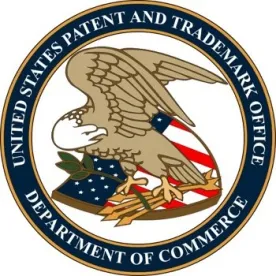In a recent precedential decision, the Trademark Trial and Appeal Board (TTAB) clarified the standard for the requisite intent for fraud left open by the Federal Circuit in In re Bose Corporation, 772 F.2d 866 (Fed. Cir. 1985). See Chutter, Inc. v. Great Management Group, LLC and Chutter, Inc. v. Great Concepts, LLC, 21 USPQ2d 1001 (TTAB 2021). In Bose, the Federal Circuit held that a trademark is obtained fraudulently under the Lanham Act only if the trademark owner makes a false, material representation with the intent to deceive. The TTAB clarified in Chutter that “reckless disregard satisfies the requisite intent for fraud on the USPTO.” By no longer requiring proof of intent to deceive, the TTAB has relaxed the standard of proof for fraud, which may result in an increase of fraud claims before the TTAB. In light of this holding, trademark owners and practitioners should take extra care when signing and submitting documents to the USPTO.
The Facts of the Case and The Board’s Decision
At issue in Chutter was Respondent’s Section 15 Declaration of Incontestability, in which Respondent’s counsel submitted that there were no pending civil actions or proceedings before the USPTO against the subject mark and registration. Petitioner sought to cancel the registration on the ground of fraud, claiming that Respondent’s counsel’s statement was knowingly false because both a cancellation proceeding before the TTAB and a civil action involving the subject mark and registration were pending at the time the Declaration was signed. Respondent’s counsel testified that he did not review the declaration “carefully enough” to see that the statement was incorrect before signing the declaration.
A Section 15 Declaration of Incontestability is a signed statement that the trademark owner claims incontestable rights in the mark and continuous use of the mark for five years. Once a trademark is incontestable, various aspects of the registration cannot be challenged by third parties, including the trademark’s validity. Therefore, the inclusion of false statements in a Section 15 affidavit/declaration is “material,” and if made with the relevant degree of intent constitutes fraud and warrants cancellation of the registration. The Board observed in Chutter that the USPTO does not accept Section 15 Declarations of Incontestability but merely reviews the filing for compliance with the statute and acknowledges that the requirements have been met.
The evidence demonstrated that at the time the declaration was signed, Respondent’s counsel was aware of the pending legal proceedings involving the subject mark and registration. Despite this knowledge, both Respondent and Respondent’s counsel failed to notify the USPTO of the false statement. The Board found that Respondent’s counsel acted with reckless disregard as to the truth of the statements in the declaration because he “paid little, or no, attention to the document he was signing under oath and thereby disregarded the significance of the benefits he was obtaining for his client.” The Board held that counsel acted “in reckless disregard for the truth” and failed to “take any action to remedy the error once it was brought to his attention.” In light of this conduct, the Board granted the petition to cancel the subject registration on the basis of fraud.
Takeaways
Failure to familiarize yourself with the contents of documents and failure to make an inquiry as to the accuracy of documents being submitted to the USPTO may jeopardize the validity of an application or registration. Trademark owners and practitioners should take notice of the Chutter decision and be sure to closely consider and review all documents before they are submitted to the USPTO.




 />i
/>i

